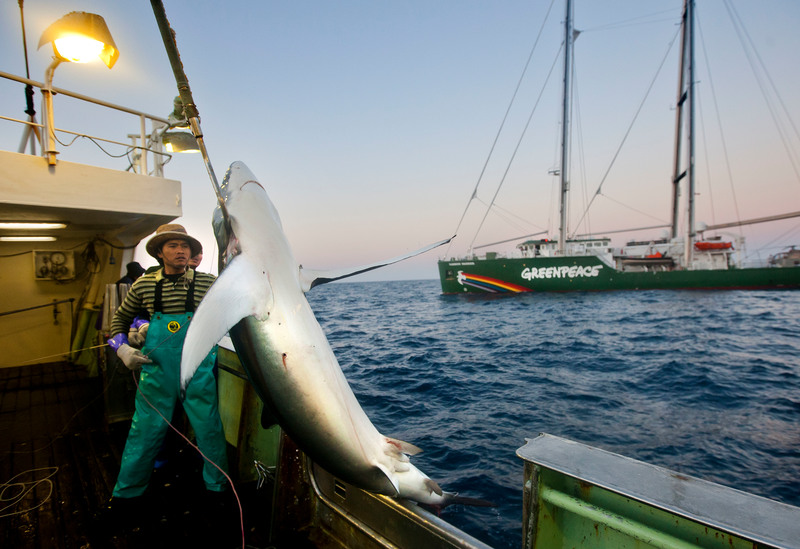Greenpeace CEO David Ritter has applauded a historic commitment from the Australian government to protect the world’s oceans, but warned the expansion of fossil fuels is incompatible with a healthy marine environment.

Speaking at the UN General Assembly Meeting in New York, Foreign Minister Penny Wong announced that Australia will sign the High Seas Treaty alongside dozens of other nations. The legally-binding pact, agreed in March, must still be ratified by individual countries before it comes into effect.
“We welcome the tremendous news from New York that the Australian Government will sign the High Seas Treaty — a critical step forward in the fight to protect our global oceans from the myriad threats they face”, Ritter said.
“The Treaty is a powerful tool to protect our oceans. Now the Australian government must act just as swiftly to deliver protected ocean sanctuaries where marine life can recover and thrive, including the South Tasman Sea between Australia and New Zealand which has been identified as an area of ecological significance.
“While the Australian Government must be applauded for this historic decision, it must also act in line with the irrefutable science that fossil fuels are driving the climate crisis, which is having severe consequences on marine environments in Australia and the Pacific. If left unchecked, climate impacts will devastate fisheries, ecosystems and economies.
“This week, the Bureau of Meteorology officially declared an El Niño weather event for Australia, meaning a summer of brutal heatwaves and extreme weather looms. Just weeks into Spring, we’ve already seen ‘off-the-scale’ ocean temperatures recorded in the Tasman Sea, and the threat of another mass coral bleaching event on the Great Barrier Reef looks increasingly likely.
“The expansion of the fossil fuel industry is incompatible with a healthy marine environment. We urge Minister Plibersek to recognise the enormous threat that projects like Woodside’s Burrup Hub pose to our oceans and to knock back this disastrous proposal.”
—ENDS—
Images for media use can be found here